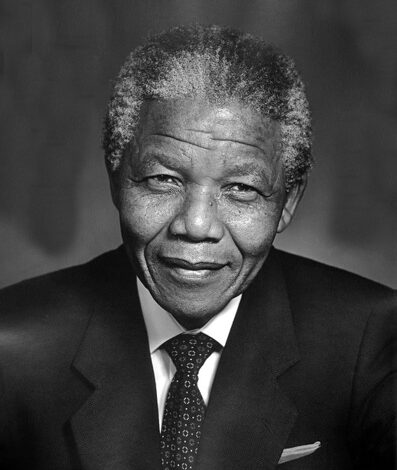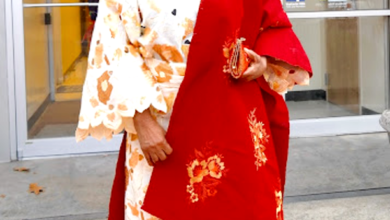Ten Trailblazing Black Historical Figures Who Shaped the World

The annals of history are etched with the indelible marks of great leaders who defied odds and paved the way for generations to come.
Among these luminaries stand Martin Luther King, Kwame Nkrumah, Harriet Tubman, and Malcolm X, towering figures who have reshaped the narrative of Black history.
Their courage and resilience continue to inspire and empower communities around the world, fueling a movement of change and progress.
The Resilient Spirit of Black Empowerment
People of African descent have navigated through turbulent times, often risking their lives and voices to challenge injustice and inequality.
The bravery of these individuals echoes through time, reminding us of the power of resilience and determination in the face of adversity.
Toussaint Louverture: The Architect of Haitian Independence (1743 – 1803)
Toussaint Louverture stands as a beacon of hope and liberation, leading the charge in the Haitian Revolution. Born into slavery, he rose to prominence as the driving force behind the successful uprising in Saint-Domingue in 1791.
Louverture’s vision and leadership were instrumental in abolishing slavery and establishing the Republic of Haiti in 1804, making it the only Atlantic slave society to overthrow its oppressors.
Sojourner Truth: A Voice for Freedom (1797 – 1883)
Born into slavery as Isabella Baumfree, Sojourner Truth escaped bondage in 1826, embarking on a journey that would define her legacy.
A fervent abolitionist and advocate for women’s rights, Truth believed she was called by God to speak out against slavery and other injustices.
In 1851, Truth delivered her famous speech, “Ain’t I a Woman?” at the Women’s Rights Convention in Ohio, highlighting the intersectionality of race and gender in the fight for equality.
Her powerful words resonated deeply, solidifying her place as a prominent voice for social change.
Frederick Douglass: A Beacon of Freedom (1818 – 1895)
Frederick Douglass’s life journey from slavery to statesman is a testament to the resilience of the human spirit. As a former slave turned abolitionist, Douglass used his eloquence and intellect to advocate for the rights of African Americans.
His speeches, including his poignant narrative of life as a slave, captivated audiences and galvanized the abolitionist movement.
Douglass’s impact extended beyond his time, shaping public opinion and influencing the course of history.
Booker T. Washington: A Legacy of Education (1856 – 1915)
Booker T. Washington’s story epitomizes the power of education and perseverance. Born into slavery, Washington’s thirst for knowledge led him on a remarkable journey to attain an education.
His founding of the Tuskegee Institute in Alabama marked a pivotal moment in African American education.
Washington’s philosophy of gradual progress and self-improvement resonated with many, earning him recognition as a leader of his generation.
Ida B. Wells: A Crusader for Justice (1862 – 1931)
Born into slavery in Mississippi, Ida B. Wells emerged as a pioneering journalist and activist, fearlessly confronting the racial injustices of her time.
She used her platform as a newspaper editor to investigate and expose the brutal realities of lynching in the South.
Despite facing threats and violence, Wells persisted in her advocacy, becoming a prominent figure in the fight for civil rights and women’s suffrage. Her courage and tenacity paved the way for future generations of activists.
Nelson Mandela: A Beacon of Hope (1918 – 2013)
Nelson Mandela’s life epitomizes the struggle against apartheid and the triumph of reconciliation. Imprisoned for 27 years for his anti-apartheid activism, Mandela emerged as a symbol of resilience and forgiveness.
His election as South Africa’s first black president marked a new era of democracy and equality in the country. Mandela’s legacy transcends borders, inspiring people around the world to strive for justice and peace.
Haile Selassie: The Lion of Judah (1930 – 1974)
Emperor Haile Selassie I of Ethiopia left an indelible mark on his nation and the African continent.
Renowned for modernizing Ethiopia and resisting colonialism, Selassie’s leadership was marked by his commitment to education and development.
He played a pivotal role in the formation of the Organization of African Unity, advocating for unity and solidarity among African nations. Selassie’s steadfast leadership and vision continue to inspire the people of Ethiopia and beyond.
Wangari Maathai: A Voice for the Environment (1940 – 2011)
Wangari Maathai, a Kenyan political and environmental activist, dedicated her life to promoting environmental conservation and sustainable development.
In 1977, she founded the Green Belt Movement, which focused on planting trees to combat deforestation and erosion while empowering local communities, particularly women.
Maathai’s work was not only about environmental preservation but also about addressing poverty and conflict. She believed that these issues were interconnected and that environmental degradation exacerbated existing challenges.
Her efforts were recognized in 2004 when she was awarded the Nobel Peace Prize for her contributions to sustainable development, democracy, and peace.
Maathai’s legacy continues to inspire environmental activists and advocates for social change worldwide.
Emmett Till: A Symbol of Injustice (1941 – 1955)
Emmett Till’s brutal murder at the age of 14 shocked the conscience of a nation and became a catalyst for the civil rights movement in the United States.
Till, a young African American boy, was tortured and killed by two white men in Mississippi after allegedly whistling at a white woman.
His mother, Mamie Till, made the courageous decision to have an open casket funeral, allowing the world to see the horrific impact of racial violence.
Till’s death galvanized the African American community, leading to widespread protests and a renewed commitment to fighting racial injustice.
Emmett Till’s legacy lives on as a reminder of the ongoing struggle for civil rights and racial equality. His name is invoked in discussions about race relations, and his story continues to inspire activists fighting against discrimination and injustice.
Barack Obama: A Trailblazer in Leadership (1961 – Present)
Barack Obama made history as the first African American president of the United States, serving two terms from 2009 to 2017. His presidency was marked by a commitment to unity, healthcare reform, and economic recovery.
Obama’s leadership during the 2009 global financial crisis helped stabilize the economy, and his healthcare reforms aimed to provide affordable healthcare to all Americans.
He also focused on strengthening international relations and addressing climate change, signing the Paris Climate Change Agreement in 2015.
In 2009, Obama was awarded the Nobel Peace Prize for his efforts to promote international diplomacy and cooperation. His presidency was a symbol of progress and inclusivity, inspiring millions around the world.





